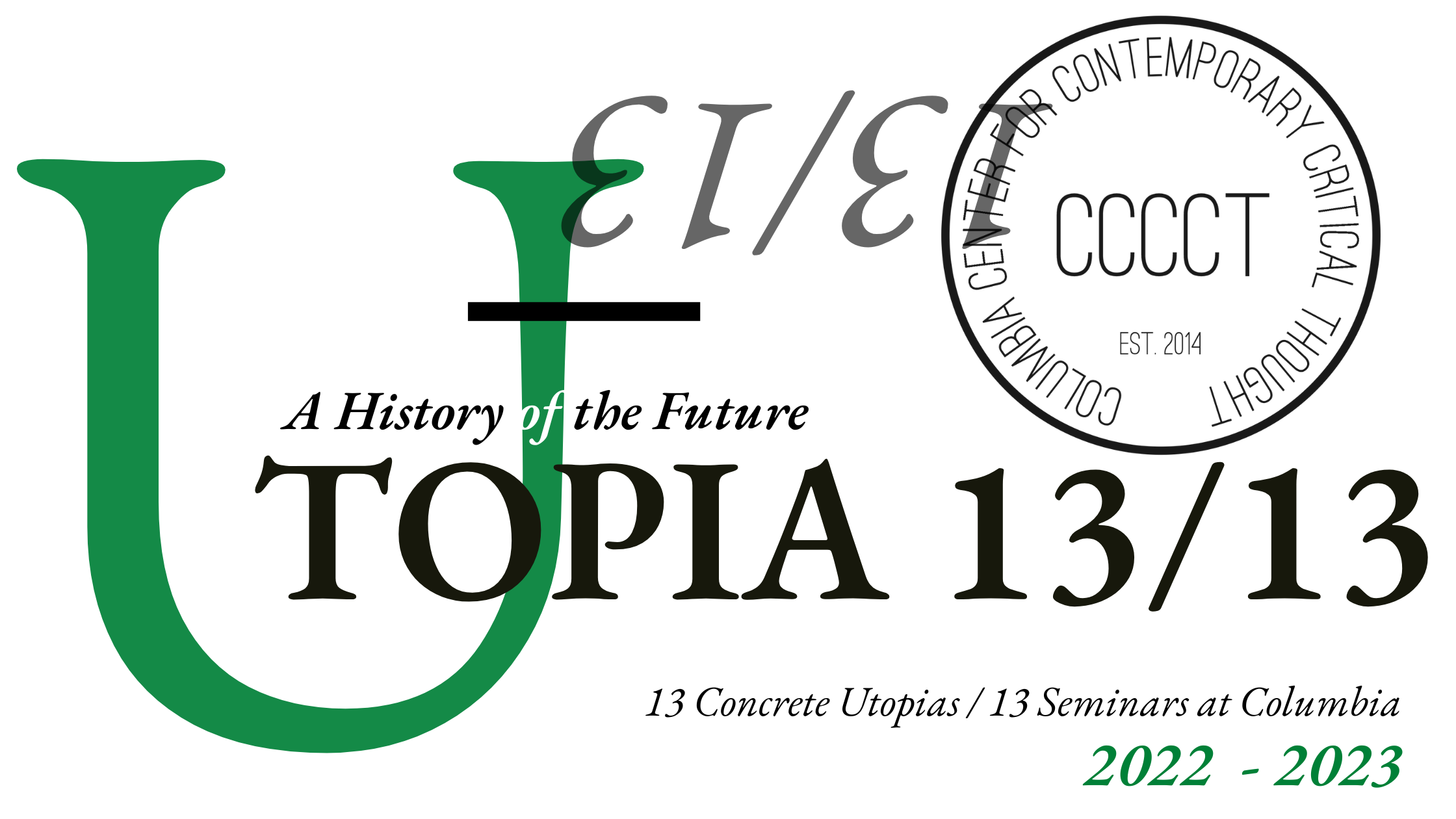By Bernard E. Harcourt
Today’s organizers — not activists, thank you — make clear that they are not black bloc participants brawling with police or hippies plotting a love-in. They are inspired by a tradition of professional revolutionaries, by Lenin’s exhortation that “unless the masses are organized, the proletariat is nothing. Organized — it is everything.” Organizing, in other words, is unembarrassed about power. It recognizes that to wield it you need to persuade untold numbers of people to join a cause, and to begin organizing themselves. Organizing means being in it to win.
— Alyssa Battistoni, “Spadework: On Political Organizing” (2019)
Alyssa Battistoni’s essay “Spadework” is one of my favorite reads of all times. I rarely say this. I mean it. I urge you to read it for yourself.
Battistoni brilliantly demonstrates, by recounting her own experience organizing with fellow graduate students for a student workers’ union at Yale, how the praxis of organizing transformed her—how it turned her not only into an organizer, but a political being. It was not the graduate classrooms, nor the seminars, so much as the arduous practice of organizing that gave meaning to political texts.
In an extended meditation on Antonio Gramsci and Stuart Hall—two worldly philosophers we studied last year in Revolution 13/13—Battistoni shows us how organizing can penetrate and undermine the hegemonic hold of common sense:
organizing burrows into the pores of your practical consciousness and asks you to choose the part of yourself that wants something other than common sense. It’s unsettling. It can be alienating. And yet I also often felt I was finally reconciling parts of myself I’d tried to keep separate — what I thought, what I said, what I did. To organize, and to be organized, you have to keep in mind Hall’s lesson: there is no true or false consciousness, no true self that organizing discovers or undoes. You too, Hall reminds us, were made by this world you hope to change. The more distant the world you want to live in is from the world that exists, the more deeply you yourself will feel this disjuncture. “I’m not cut out for this,” people often say when they struggle with organizing. No one is: one isn’t born an organizer, but becomes one.
Alyssa Battistoni does not romanticize the hard work of organizing. Instead, she borrows a term from Ella Baker—“spadework”—to describe what she calls the labor of organizing, “the hard labor that prepares the ground for dramatic action.”
Utopia 3/13
The point of gathering for a seminar on union organizing as part of Utopia 13/13 is not to suggest, by any means, that unions or union organizing are “utopian.” They are, in truth, no more than a makeshift response to the overwhelming imbalance of power between workers and their employers. Unions are merely a first step, but a necessary one, to combat work inequalities. They do not constitute a full-fledged utopia.
But the act of organizing, the political experience itself, has a utopic dimension. As Battistoni writes, “Organizing relationships can be utopian: at their best, they offer the feminist dream of intimacy outside of romance or family.” Battistoni goes on to explain:
In the union, I loved people I did not know very well. In meetings I was often overcome with awe and affection at the courage and wisdom of the people there with me. When I needed help, there were always people I could call, people who would always pick up the phone, people I could and did talk to about anything. These relationships often served as a source of care and support in a world with too little of those things. But they were not only friendships, and not only emotional ballast. The people I looked to for support would also push me when it was called for, as I would them; that, I knew, was the deal.
Organizing creates bonds of solidarity that can prefigure a utopian future. It is perhaps in the organizing, not necessarily in the end product, that we can get closest to a space called utopia or heterotopia. As André Prettman writes in his study of postpoetry, “what is significant is less a question of where one begins and where one ends, but, more so, what occurs in the middle, or the in-between, during the act of wandering; as Gilles Deleuze puts it: “Ce qui compte dans un chemin, ce qui compte dans une ligne, c’est toujours le milieu, pas le début ni la fin.”
It is nevertheless fraught to mention the term “utopia” in the context of work and employment, especially in the context of the university. It is for this reason, no doubt, that Dominic Terrel Walker and Helen Zhao—doctoral students at Columbia and elected members of the Student Workers of Columbia-UAW 2710—urge us to read Fred Moten and Stefano Harney’s The Undercommons: Fugitive Planning & Black Study (2013), especially Chapter 4 on “Debt and Study.” (As you may recall, we studied The Undercommons in Praxis 10/13 before the pandemic, in March 2019, with Marquis Bey, Jack Halberstam, Heather Love, Allegra McLeod, and Kendall Thomas. You can read their brilliant essays on The Undercommons here).
Moten and Harney’s chapter on debt, credit, and study describes a fractured world where those above have credit and manage debt, pursue their ambitions to join the global conversation or start their own NGO, and those below are weighted down by debt. The latter are the ones, Moten and Harney refer to, who “carry bags of newspaper clippings, or sit at the end of the bar, or stand at the stove cooking, or sit on a box at the newsstand, or speak through bars, or speak in tongues.” (68) The reference to speaking through bars is a haunting reminder of our carceral society and the need for abolition democracy. But the chapter ends on the same theme as Battistoni’s essay—on the theme of organizing. “If we listen to them they will say: come let’s plan something together. And that’s what we’re going to do. We’re telling all of you but we’re not telling anyone else.” (68).
These readings frame our discussion of union organizing—both as a retrospective discussion on all the successful organizing that has been going on across the country, at Columbia University, and at other places like Starbucks and Amazon, and as a prospective discussion on the future of work. In this respect, we are especially delighted to be joined by Casey Moore (@unioncasey), a leading organizer in Buffalo, NY, with Starbucks Workers United.

The Future of Work
The moment could not be timelier. The fact is, something is happening among workers in America. It’s not clear exactly what, but we’re in a time of turmoil and change. And these moments always have great promise.
The COVID-19 pandemic triggered what people now call “the Great Resignation,” following Anthony Klotz, a professor at Texas A&M University—or what NPR labeled the “Great Renegotiation.” Beginning in early 2021, workers started quitting their jobs en masse, some of them retiring, others looking for better jobs, yet others working at home. That year, 47.8 million workers quit or changed jobs, an all-time high. The pace continued in 2022, and it has now extended into a new phase that people are calling the “Quiet Resignation.” According to Zaid Khan, who popularized the notion on TikTok, quiet quitting is “where you’re not outright quitting your job, but you’re quitting the idea of going above and beyond. You’re still performing your duties,” Khan explains, “but you’re no longer subscribing to the hustle culture mentality that work has to be your life.” Few workers seem to want to return to work, having experienced remote work from home, resulting in what people are calling the “return-to-work wars,” as executives at large corporations are trying to get the workforce back in the office.
At the same time, there have been increasing movements toward unionization, as evidenced by the successful union vote at the Amazon warehouse in Staten Island, at R.E.I. in Soho, and at many Starbucks stores. The National Labor Relations Board reports a 57% rise in the number of filings of union election petitions for the five months following October 2021. “More than 250 Starbucks locations filed petitions, and after notching a first win late last year, 54 Starbucks company-owned stores have formally organized,” according to CNBC. “Google Fiber contractors in Kansas City successfully voted to unionize their small office in March becoming the first workers with bargaining rights under the one year-old Alphabet Workers Union.” This year, so far, the unions have prevailed in about 77% of the union elections, which is the highest rate in recorded history. For the first half of 2022, 78,000 workers have gone on strike, which is three times more than for the same period in 2021. Moreover, since 2010, there has been a steady increase in public approval of labor unions—from a low of 48% to a high of 71% in 2022, the highest approval rating for labor unions since 1965.
The Times They Are A-Changin’.
As Alyssa Battistoni shows in her essay “Labor without Love” in The Nation, all of these changes and transformations need to be placed within the larger arc of broad societal shifts in labor associated with deindustrialization, automation, and the rise of the service industries. The number of manufacturing jobs in the United States declined continuously since the mid twentieth century, thereby reducing the type of work that came with solid benefits, stability, and even, in some cases, pensions—replaced by more precarious jobs in the service sector. Automation has always been the source of both utopic and dystopic visions of the future. At one end, some believe that it will ring in the end of work and leisure time for everyone. That was always part of the ideal of a communalist future. At the other end, some believe it will come with scarcity, even greater inequality, and a collapse of social structures.
In conversation with Sarah Jaffe’s book Work Won’t Love You Back: How Devotion to Our Jobs Keeps Us Exploited, Exhausted, And Alone (Hurst, 2021), Battistoni explores the affective dimensions of service jobs, especially those traditionally considered “women’s work,” such as daycare, housekeeping, caring for the elderly, teaching, and nonprofit work. “In these kinds of jobs,” Battistoni writes, “love is invoked to squeeze out more work with less pay.” What is expected of workers in the service industries and their relation to work is different than in the more traditional manufacturing context, which also has many implications for understanding the transformation of work today—the quiet quitting, the great resignation, the increased unionization.
To discuss all these dimensions of union organizing and the future of work, we are delighted to welcome to Utopia 3/13 Alyssa Battistoni, Casey Moore, Dominic Walker, and Helen Zhao.
Welcome to Utopia 3/13!
